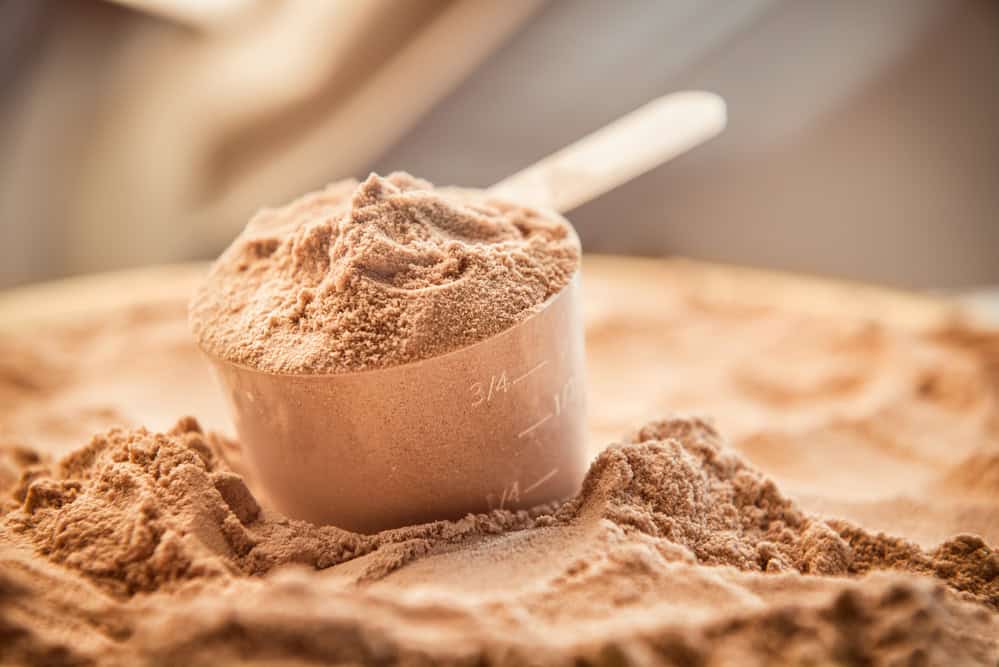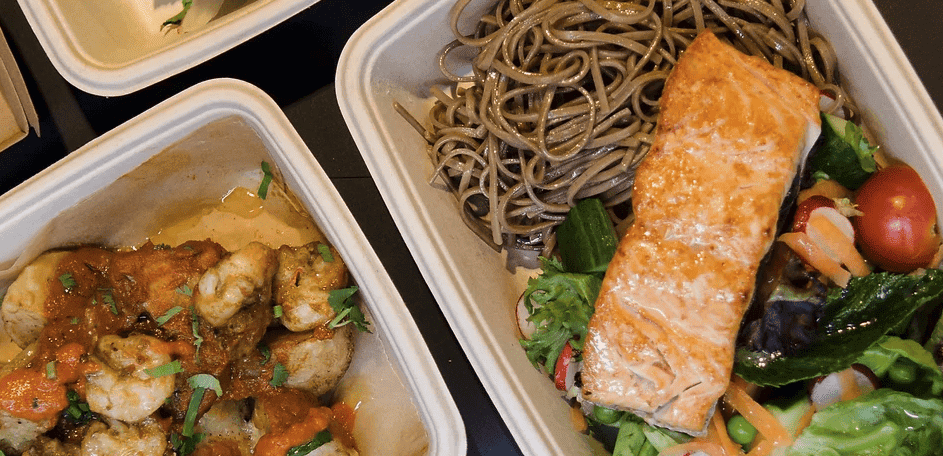On the face of it, weight loss or weight gain is simple. If you consume more calories than you expend, you’ll gain weight and vice versa. If you’re burning more calories than you consume you’re in what is known as a ‘calorie deficit.’ This is a key factor in losing weight. However, for many people the goal is to lose fat, while gaining muscle. This is where things get complicated, because a key factor in gaining muscle is being in a ‘calorie surplus.’
In most cases, your body is either in a state of burning (catabolism) whereby you’re losing weight or building (anabolism) whereby you’re gaining weight (i.e muscle).
There are some notable exceptions to this rule, namely those with little to no training experience or those using performance enhancing drugs.
However even if you don’t fall into one of those 2 categories, there are a number of diet and training variables you can manipulate to either maintain or even put on a small amount of muscle while losing fat.

When it comes to training, it helps to think of your activity as a signal you’re sending to your body. If you perform regular strength training workouts, you’re telling your body that you need muscle mass. If you don’t use it, you’re telling your body you don’t need it. Your body is great at adapting, you just need to send it the right information.
Are carbs are required for weight loss?
The prevalence of low carb diets, such as Atkins or Keto, may lead you to believe cutting out carbs is the key to weight loss. However, the truth is you can lose weight while still eating carbohydrates.
What matters when it comes to weight loss is being in a calorie deficit. While it’s true that cutting out carbs altogether may lead to a calorie deficit, its not a requirement. In fact, for most people a low carb diet will not be sustainable in the long term.

The type of carbs you eat can impact your ability to maintain a calories deficit however. Refined, or simple, carbs are absorbed and digested rapidly, raising blood sugar quickly and insulin. The elevation of insulin levels causes a crash in blood sugar which leads to cravings of more simple carbs to bring things back into balance. This leads to overconsumption as the body becomes stuck in a loop- the consumption of refined carbs leads to cravings for more refined carbs.
Opt for complex carbs, such as whole grain bread and pasta, potatoes or sweet potatoes and quinoa, to give afew examples, as these will keep you fuller for longer.
Is losing weight all about protein shakes?
Protein powder is a food supplement designed to help get you towards your daily protein goal.
Protein is key to building muscle because the amino acids it is comprised of help repair and maintain muscle tissue. When you perform resistance training, you create microtears in your muscle fibres. Protein helps repair and strengthen these microtears, building more muscle in the process andn protein shakes are a convenient way of ensuring you hit the amount of protein you need for this process to take place.

Protein powder in and of itself won’t help you lose weight if you’re not in a caloric deficit.
However, it can be used as a tool to help you maintain that deficit. With most protein powders having a sweet flavour, a shake can be an option for curbing cravings. A protein shake will also be more satiating than something sugary, meaning the 120 calories or so of protein powder will likely keep you fuller for longer than the equivalent caloires of sweets or chocolate.
Protein also has a greater thermogenic effect than fats or carbs, meaning your body uses more calories to digest it. Although the impact of this is likely to be marginal.
Protein powder is a tool to help you hit your total protein goals for the day. These will differ from person to person, therefore the amount of protein powder required will also vary. As a general rule of thumb, for most people, 0.8-1.2g of protein per kg of bodyweight per day day will be adequate.
Strength athletes or those involved in high-volume, high-intensity training will require more protein at 1.2-2g per kg of bodyweight per day, and endurance athletes will require 1.2-1.8g per kg of bodyweight.

Protein powders should always be used to supplement a healthy diet, including a variety of whole food sources of protein. Powders are a great tool to boost your protein intake, but they don’t include the vitamins and minerals you’ll find in whole food sources. Excessive protein powder intake may also cause gastric distress. Aim for no more than 1-2 30g scoops of protein per day. If you need to up this on certain days to hit your targets it’s no big deal just try not to make a habit of it.
What would the ideal day of nutrition look like?
The priority is hitting your target calories, ideally split in such a way that you stay satiated throughout the day. For example, if your target is 2,200kcal you may split it as below:
Breakfast- 600kcal
Morning Snack- 200kcal
Lunch- 600kcal
Afternoon Snack- 200kcal
Dinner- 600kcal
Once you have that nailed, you can start thinking about macro balance.
As mentioned above, the amount of protein you require will depend on your activity level. While you’re in a calorie deficit, consuming an adequate amount of fat to help prevent disrupt hormone disruotion is vital. As a rule of thumb, aim for 1g per kg of bodyweight. You can then fill out the rest of your calories with carbs.
To figure this out, you’ll need to know how many calories are in a gram of protein/fat/carbs:
Protein= 4kcal per 1g
Carbs= 4kcal per 1g
Fats= 9kcal per 1g
Let’s say you’re an 85kg man, with a daily calorie target of 2,200kcal, your daily macros may look something like the below.
Protein- 102g (equating to 408kcal)
Fat- 85g (equating to 765kcal)
Carbs- 256g (equating to 256kcal)
Aim for slow and sustainable weight loss
When it comes to losing fat while gaining or maintaining muscle, the key element is sustainability.
Consider how much of a deficit you’re aiming for. This will depend on your current body composition.

Those at the higher end of BF% can get away with a more drastic deficit but for most people anywhere between a 250-500 calorie deficit per day will be enough for sustainable weight loss without sacrificing too much muscle mass. Everyone is different and it may be a little bit of a test and learn process, but if you aim to lose 0.5-1% of your bodyweight per week you’ll be on the right track.
If you go into too extreme of a deficit, you’ll end up burning too much muscle. Furthermore, a diet that you have to suffer through, leaving you hungry all the time, is not one that you will be able to turn into a lifestyle change. You may well lose the weight, but chances are you’ll bounce back if you fail to establish sustainable habits.

